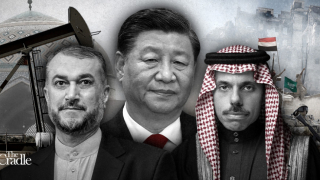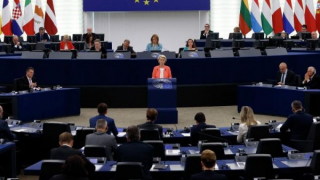30.10.2016
The initial election results are reported to show that Iceland’s right-of-center coalition government will not retain its majority in Iceland’s...
18.10.2016
The German economist, the former head of the European Central Bank (ECB), the founding father of the euro Otmar Issing warned that the ECB has grown...
09.04.2023
The idea that History has an endpoint, as promoted by clueless neoconservatives in the unipolar 1990s, is flawed, as it is in an endless process of...
26.07.2017
In the Siliguri Corridor, also known as the Chicken's neck, Chinese and Indian military forces sit on the respective sides of their vague borders and...
14.11.2016
Telephone lines of American psychological assistance services (aimed to prevent suicides) have recorded a record number of calls of LGBT and perverts...
06.10.2022
In the structure of the modern Western world, wars currently no longer serve the purpose of settling scores between two countries, moved by the...
02.10.2024
When the European Union as a political institution was established on 1 November 1993 with the Maastricht Treaty, following the already established...
16.10.2024
As you know, “whoever pays, dances the girl,” and this is no exception for the US political system. Certain forces are interested in the victory of...
25.07.2024
That Beijing had become the whipping boy to justify NATO’s eastward expansion was recently visible in plain sight. In the meeting marking 75 years...
02.12.2016
There were three candidates from three parties: the currenly in service President Yahya Jammeh, who came to power 22 years ago as a result of the...
11.04.2019
Estimated 900 million voters of world’s largest democracy will exercise their constitutional right to select their next parliament by balloting in...
10.07.2017
Clearly, the Serbian Army is unique in modern military history














